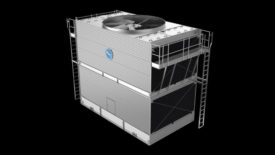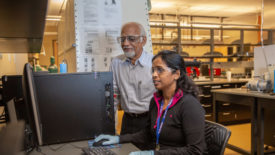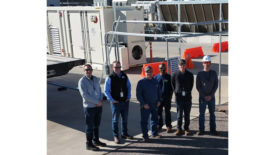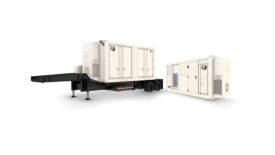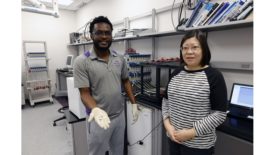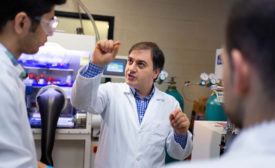Home » Keywords: » batteries
Items Tagged with 'batteries'
ARTICLES
The Series 3000 tower comes with the option to add on BAC’s Enduradrive Fan System
Read More
Professor Raj N. Singh elected to National Academy of Engineering
He will be inducted into the NAE at the the academy's annual meeting to be held in September
February 16, 2024
Caterpillar demonstrates viability of data center backup hydrogen fuel cells
Demonstration shows progress toward data centers achieving reliable and sustainable backup power with hydrogen technology
January 22, 2024
Carrier to commercialize carbon-reducing cooling technology
Deal to benefit AirJoule dehumidification commercialization
January 8, 2024
Illinois Tech Assistant Professor Publishes Paper on Novel Chemistry Behind Ultra-High Power Density Batteries
The battery design has the potential to store 1 kWh per kg or higher—four times greater than lithium-ion battery technology, which would be transformative for electrifying transportation, especially heavy-duty vehicles such as airplanes, trains, and submarines.
February 13, 2023
Top 5 Articles @ www.esmagazine.com (September 2022)
What are engineers making time to read? Here is the five-item punch list of the most popular news articles, features, and columns at ESmagazine.com.
October 1, 2022
Top 5 Articles @ www.esmagazine.com (August 2022)
What are engineers making time to read? Here is the five-item punch list of the most popular news articles, features, and columns at ESmagazine.com.
September 1, 2022
Top 5 Articles @ www.esmagazine.com (July 2022)
What are engineers making time to read? Here is the five-item punch list of the most popular news articles, features, and columns at ESmagazine.com.
August 1, 2022
Be in the forefront of the mechanical engineering industry!
Join thousands of professionals today. Shouldn’t you know what they know?
JOIN NOW!Copyright ©2024. All Rights Reserved BNP Media.
Design, CMS, Hosting & Web Development :: ePublishing
